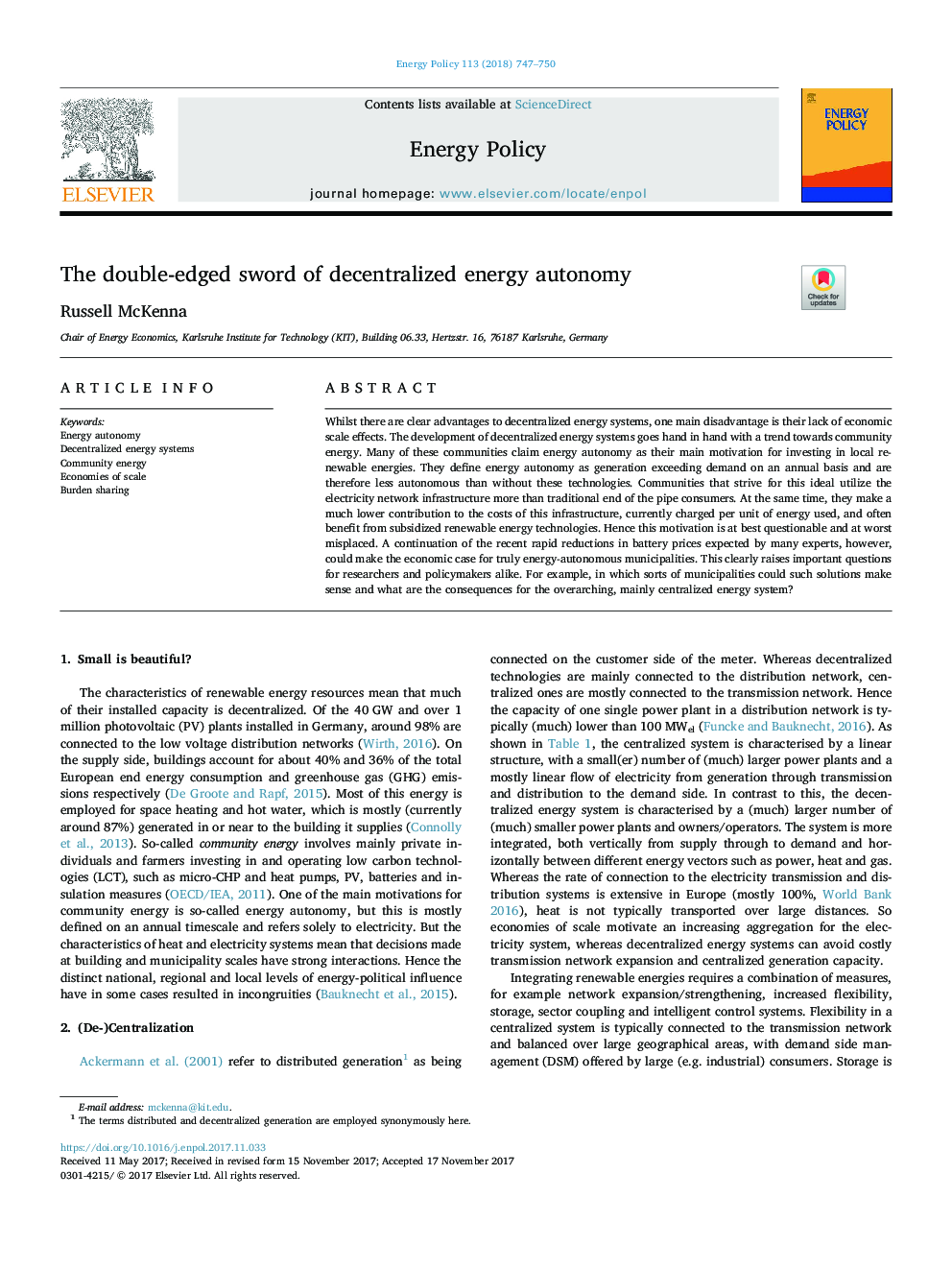| Article ID | Journal | Published Year | Pages | File Type |
|---|---|---|---|---|
| 7397807 | Energy Policy | 2018 | 4 Pages |
Abstract
Whilst there are clear advantages to decentralized energy systems, one main disadvantage is their lack of economic scale effects. The development of decentralized energy systems goes hand in hand with a trend towards community energy. Many of these communities claim energy autonomy as their main motivation for investing in local renewable energies. They define energy autonomy as generation exceeding demand on an annual basis and are therefore less autonomous than without these technologies. Communities that strive for this ideal utilize the electricity network infrastructure more than traditional end of the pipe consumers. At the same time, they make a much lower contribution to the costs of this infrastructure, currently charged per unit of energy used, and often benefit from subsidized renewable energy technologies. Hence this motivation is at best questionable and at worst misplaced. A continuation of the recent rapid reductions in battery prices expected by many experts, however, could make the economic case for truly energy-autonomous municipalities. This clearly raises important questions for researchers and policymakers alike. For example, in which sorts of municipalities could such solutions make sense and what are the consequences for the overarching, mainly centralized energy system?
Keywords
Related Topics
Physical Sciences and Engineering
Energy
Energy Engineering and Power Technology
Authors
Russell McKenna,
